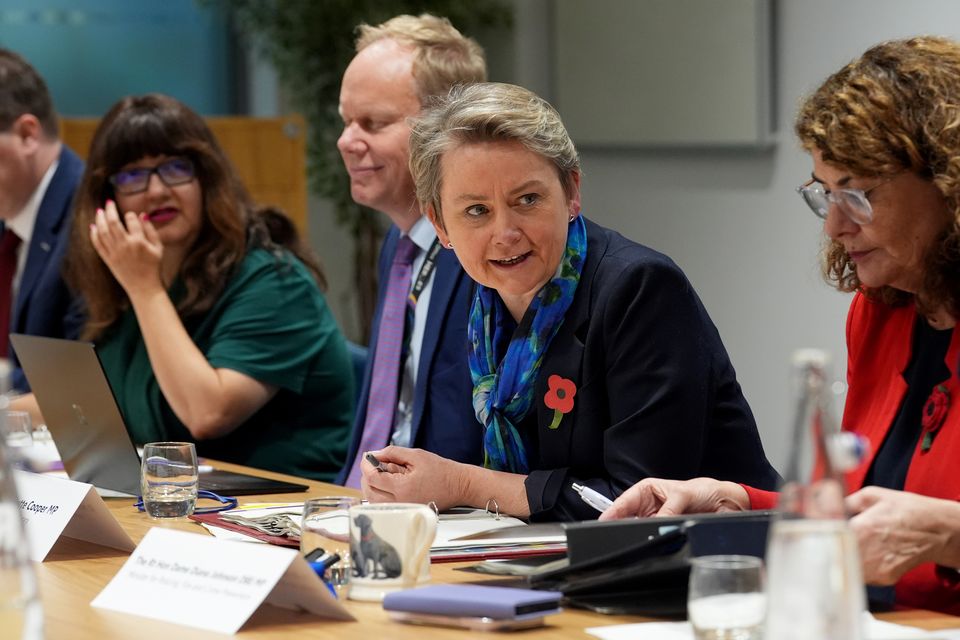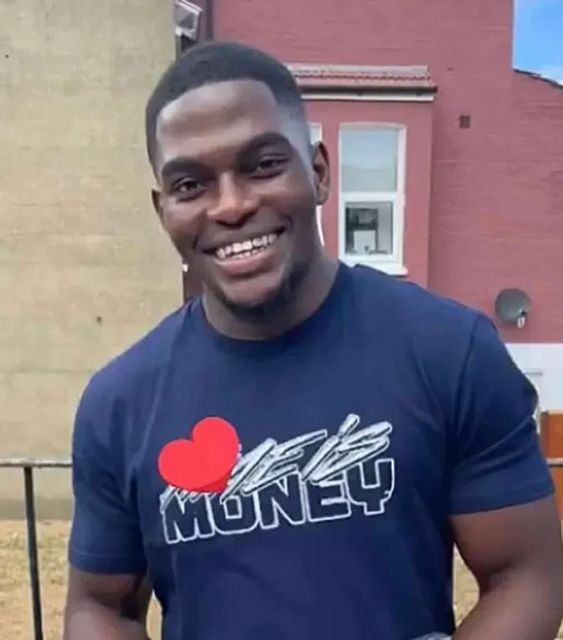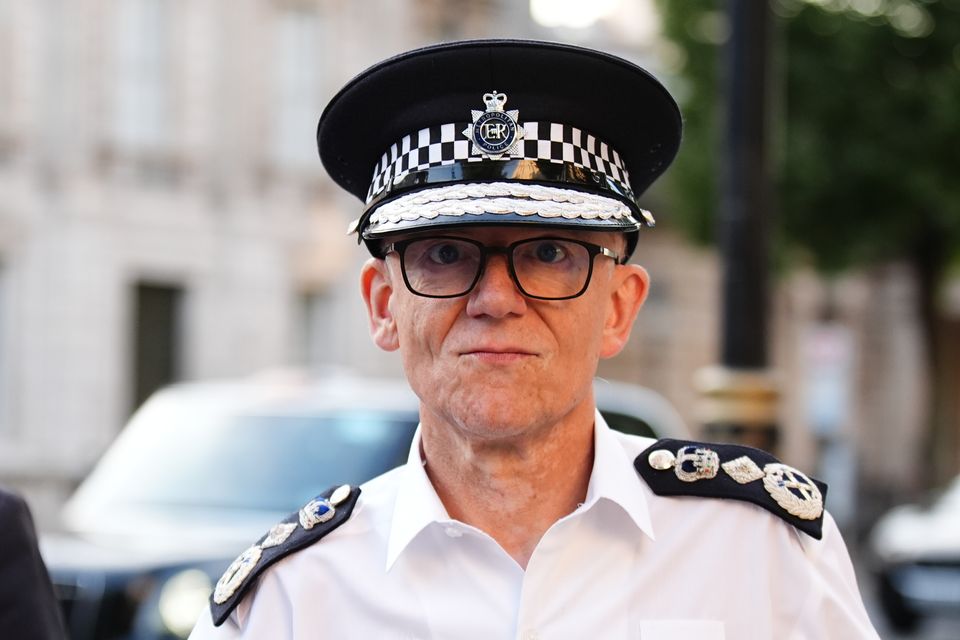Scotland Yard hailed policing reforms announced by the Government as progress towards a “fairer and faster” system after the Home Secretary said accused firearms officers will remain anonymous unless they are convicted.
Commissioner Sir Mark Rowley said the changes represented a “welcome step forward” after Yvette Cooper unveiled a string of measures in the wake of the Chris Kaba case.
“These measures represent positive progress toward a system that is both fairer and faster, supporting the vast majority of officers who serve with integrity every day,” he said.
“The importance of these changes couldn’t have been demonstrated more clearly than by the acquittal of our firearms officer Sergeant Martyn Blake.
“Accountability of the law is critical, but the current system is protracted and unbalanced and fails to secure the confidence of the public and officers.
“Over many years this has created a culture where our officers are increasingly more worried about a skewed, imbalanced system than they are the dangerous criminals they face on the streets. If this continues, this risks making the public less safe.”
Home Secretary Yvette Cooper attending the National Policing Board meeting at the Home Office on Wednesday (Lucy North/PA)
Earlier, Ms Cooper told MPs a review of how police who take fatal shots in the line of duty are held to account found the system was “not commanding the confidence of either the public or the police” amid wider concerns about disciplinary proceedings.
The move comes days after marksman Mr Blake was cleared of Chris Kaba’s murder.
The 24-year-old was unarmed when Mr Blake shot him through the windscreen of an Audi Q8 as he tried to ram his way past police cars in Lambeth, south London, in 2022.
When reporting restrictions were lifted after the case concluded, it emerged Kaba was a “core member” of one of London’s most dangerous criminal gangs and was allegedly directly linked to two shootings in the six days before he was shot dead by police.
The Independent Office for Police Conduct (IOPC) is reviewing whether Mr Blake should still face disciplinary proceedings.
The 40-year-old is reportedly living in hiding, fearing for his life and his family after a £10,000 bounty was offered in revenge for Kaba’s death to anyone prepared to kill him.
Ms Cooper said the case happened “against a backdrop of wider and long-standing concerns about accountability, standards and confidence” and amid “fallen community confidence in policing and the criminal justice system across the country”, particularly among black communities.
Speaking in the Commons on Wednesday, Ms Cooper said: “The accountability review found that the current system for holding police officers to account is not commanding the confidence of either the public or the police.
“Accountability and misconduct proceedings are too often plagued by delays stretching for years, which are damaging for complainants, officers and forces alike, and the system has become much more complex, with confusion over multiple thresholds for different investigations, a lack of clarity, especially involving specialist capabilities.
“There are also wider concerns about the misconduct system, because the focus when things go wrong can end up being entirely on the decisions of the individual officer.
“So systems failings like poor training, unmanageable caseloads or wider false practices are not sufficiently considered or followed up so too little changes.”
Gang member Chris Kaba was unarmed when he was shot through the windscreen of an Audi Q8 as he tried to ram his way past police cars in 2022 (Family handout/PA)
As well as introducing a “presumption of anonymity for firearms officers subject to criminal trial following a police shooting in the course of their professional duties, up to the point of conviction”, Ms Cooper vowed to raise the threshold for officers facing court so it matches the measure the Crown Prosecution Service (CPS) uses for making charging decisions about members of the public.
This would mean charges would be brought only when there is a reasonable prospect of conviction, instead of if there is an indication of criminality using limited evidence.
“Currently, that threshold is lower for police officers, and that is not justified,” she said.
Bereaved families will also be given the right to appeal when the IOPC decides not to seek a charge against an officer.
The review began under the previous Conservative government when then home secretary Suella Braverman pledged to review the ways that firearms officers who take fatal shots are held accountable, with the work continuing after Labour won the general election.
Sir Mark is among those who previously branded the current accountability system as “broken” and raised concerns it might lead to a loss of morale among firearms officers, at a time when there are significant gaps in staffing across the country.
Prosecutors and the police watchdog defended the decision to take Mr Blake to court after the verdict, with the CPS saying it was “right that the case was put before the jury for them to scrutinise and to decide.”
Metropolitan Police Commissioner Sir Mark Rowley has previously said the current accountability system is ‘broken’ (Aaron Chown/PA)
The Director of Public Prosecutions Stephen Parkinson has since been asked to review the CPS guidance on charging police officers for offences committed while they are on duty, Ms Cooper said.
Mr Parkinson welcomed the request as he confirmed the work would be carried out, adding: “Criminal prosecutions brought against police officers for actions taken in the course of their duties are extremely rare and these decisions are only made after careful consideration of all the relevant evidence and circumstances.
“It is crucial that police officers are able to use their powers with legal certainty and clarity, always balanced with the public’s need to see the highest levels of scrutiny and accountability.”
Meanwhile, the College of Policing has been tasked with working lessons learned from “deaths or serious injuries arising from police contact or police pursuits” into officer training.
The body’s boss, Chief Constable Sir Andy Marsh, said: “No one, including officers who carry firearms, can be above the law and it is right for communities to expect a high level of accountability.
“However, as recognised by the Home Secretary today, any system of accountability must also give officers the confidence to act in accordance with their training and to not be penalised as a result.”
Shadow home secretary James Cleverly said he “agreed with almost all” of the proposals put forward by the Government but argued firearms officers should be able to use their training as part of their defence in criminal proceedings.
Labour MP Diane Abbott told the Commons “nothing could be more damaging for police community relations, than if the idea took hold that in some way the police were above the law” as she questioned Ms Cooper about the measures.
Conservative MP Sir Julian Lewis said it was “concerning” to hear the Met had closed a probe into the “hit” taken out against Mr Blake but the Home Secretary said she was unable to comment.
Ms Cooper would not be drawn on if she had faith in the IOPC and the CPS, instead pointing to the review.


